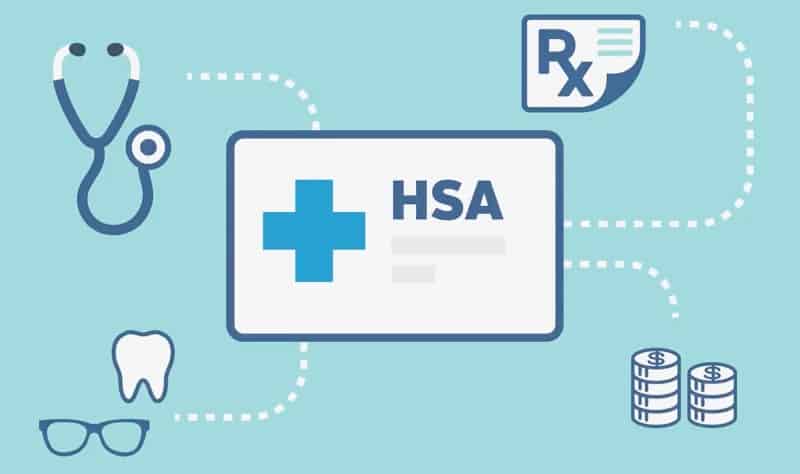What’s an HSA and Do I Need One?

A Health Savings Account, more commonly referred to by its abbreviation HSA, is a type of savings account that allows you to set money aside for qualified medical expenses and reduce your taxable income. Not everyone is eligible to have an HSA (not everyone should) and it does come with some caveats.
In order to qualify for an HSA, you must be enrolled in a High-Deductible Health Plan (HDHP) that is specifically flagged as HSA-eligible. An HDHP has lower monthly premiums but comes with higher deductibles. In 2020, the government set the minimum deductible for HDHPs at $1,400 for an individual and $2,800 for a family with a max out-of-pocket of $6,900 for individuals and $13,800 for families. Keep in mind that many plans have significantly higher minimums and max out-of-pockets than these set limits. These plans generally work well for those who have few regular healthcare expenses and a desire to reduce health insurance costs. Those who have higher ongoing healthcare costs or anticipate significant healthcare expenses in the near future may be better off with an insurance plan that has higher premiums but covers more.
Many employers who offer HDHPs also offer HSAs. If they do, you can set up automatic contributions that will come directly from your paycheck that will be made pre-tax. If your employer doesn’t offer an HSA but your plan is eligible for one, you can open an HSA on your own and your contributions will be tax-deductible. In either case, your contributions grow tax free and withdrawals are not taxed when used for qualified medical expenses. For 2020, the IRS has limited your total annual contributions to $3,550 for self-only coverage and double that for family coverage. If you are over 55, you can contribute an additional $1,000 annually.
Another benefit of HSAs is that your balance rolls over from year to year, so you can contribute to an HSA with the intention of saving the money for future medical expenses. Depending on what company holds your HSA, you may be able to invest your account in an attempt to further benefit from the tax-free growth available to HSAs. Whether your HSA funds are for future or immediate medical expenses, you can easily access your funds through checks or debit cards linked to your account. It is important to note that HSAs are portable, meaning if you switch health insurance plans, change jobs, or retire, your account remains available to you.
The list of qualified medical expenses covers a wide range of medical, dental and mental health services. Even still, you may find yourself using your HSA funds for an expense that is not covered. In this case, your withdrawal will be considered taxable income and, if you are under 65, will also be subject to a 20% penalty.
HSAs can be a helpful savings tool that may or may not be a benefit to you. The easiest and safest way to identify your best option for managing medical expenses is to seek guidance from your financial planning professional.
The opinions expressed in this article are those of author and should not be construed as specific investment advice. All information is believed to be from reliable sources, however, no representation is made to its completeness or accuracy. All economic and performance information is historical and not indicative of future results. Any tax advice contained herein is of a general nature. Further, you should seek specific tax advice from your tax professional before pursuing any idea contemplated herein.
Fee-Based Planning offered through W3 Wealth Advisors, LLC – a State Registered Investment Advisor – Third Party Money Management offered through Valmark Advisers, Inc. a SEC Registered Investment Advisor – Securities offered through Valmark Securities, Inc. Member FINRA, SIPC – 130 Springside Drive, Suite 300 Akron, Ohio 44333-2431 * 1-800-765-5201 – W3 Wealth Management, LLC and W3 Wealth Advisors, LLC are separate entities from Valmark Securities, Inc. and Valmark Advisers, Inc.
Certified Financial Planner Board of Standards Inc. (CFP Board) owns the certification marks CFP®, CERTIFIED FINANCIAL PLANNER™, CFP® (with plaque design), and CFP® (with flame design) in the U.S., which it authorizes use of by individuals who successfully complete CFP Board’s initial and ongoing certification requirements.
